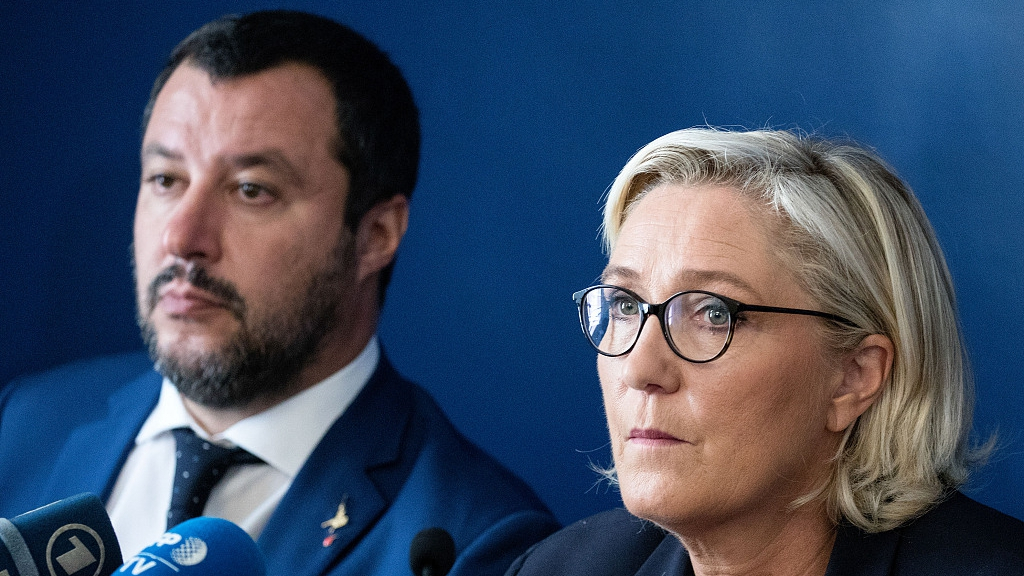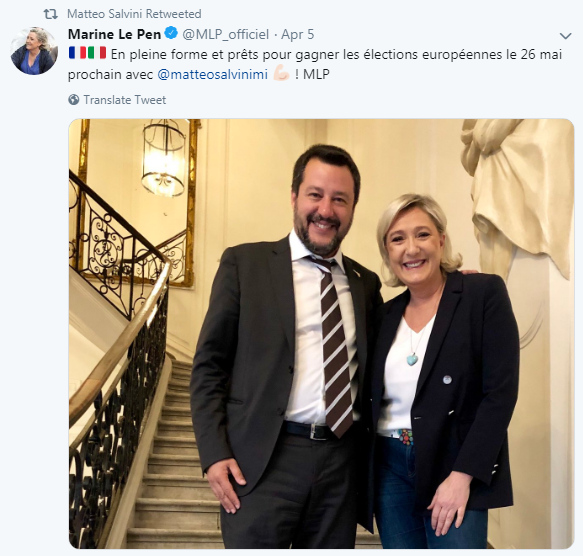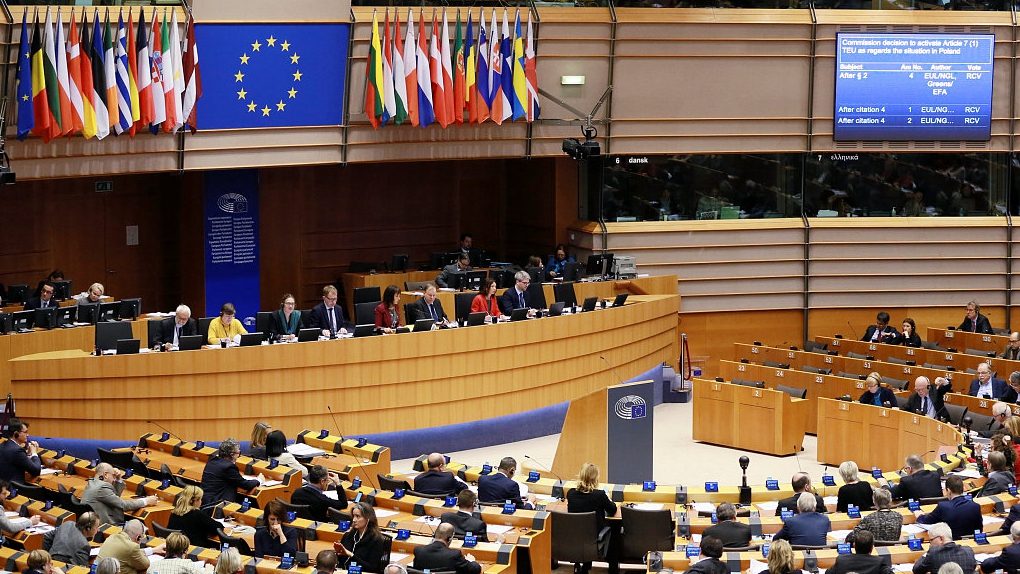
Europe
15:42, 08-Apr-2019
Nationalists seek alliance of influence ahead of EU polls
By John Goodrich

Nationalist and populist parties from across Europe will gather on Monday, aiming to forge an alliance that could create a Brussels powerhouse after May's EU elections.
Polling suggests the two biggest political groupings in the European Parliament – the center-right European People's Party (EPP) and the center-left Socialists & Democrats (S&D) – will lose their combined majority in the elections, and right-wing parties such as Italy's League and France's National Rally (NR) are aiming to increase influence by working together.
Italy's Vice Prime Minister Matteo Salvini, also leader of the League, is driving the "Towards a Europe of Common Sense” campaign. On Monday he will host a collection of euroskeptic, anti-immigrant parties in Milan, after a week in which he and Marine Le Pen, leader of NR, held talks and posted selfies in Paris.
After Friday's Salvini-Le Pen meeting, a spokesman for the Italian said the leaders were "considering a common manifesto to close the electoral campaign and announce the start of a new Europe."

Twitter Screenshot
Twitter Screenshot
In domestic European elections over recent years, nationalist parties have surged.
The League is in coalition government in Italy, the Freedom Party shares power in Austria, the Law and Justice (PiS) party governs in Poland, Fidesz is the majority party in Hungary, NR lies in second place in polls in France, and the Alternative for Germany is the biggest opposition party in Germany
There is little doubt that nationalist parties will again perform well in May's EU elections. Polling by Kantar for the European Parliament in late March projected that 150 MEPs from euroskeptic groups would be elected to the 705-member (if Britain does not participate) chamber.
The centrist EPP is projected to win 188 seats and the S&D group 142, so a united nationalist bloc with 150 MEPs would be on course to be the second-largest in the parliament.
"There is a growing confidence of voters to go against the norm," Susi Dennison, a senior policy fellow at the European Council on Foreign Relations, told Reuters. "The 'anti- forces' are much more motivated right now than the pro-Europeans."
But the conundrum for Salvini and Le Pen is that while many nationalist parties share broad ideological aims, there are also distinct policy differences and rivalries – they are not united.
Skepticism of immigration, multiculturalism and the EU tick common boxes, but creating a multi-national alliance of nationalist parties also throws up contradictions.
Some parties back market economies, others are statist. Some back EU-wide distribution of asylum seekers, others are wholly opposed to immigration. Some focus on Christian cultural values, others are secular.

Members of the European Parliament attend a plenary session of the European Parliament in Brussels, Belgium, March 1, 2018. /VCG Photo
Members of the European Parliament attend a plenary session of the European Parliament in Brussels, Belgium, March 1, 2018. /VCG Photo
The European Parliament is formed of blocs of representatives – national parties take a place in one of the blocs, allying with those who hold similar views – and right-wing nationalist parties can currently be found in multiple blocs.
The League and RN sit in Europe of Nations and Freedom (ENF) group, while others nationalists are members of the European Conservatives and Reformists (ECR) and the Europe of Freedom and Direct Democracy. Fidesz remains a member of the EPP despite a temporary suspension.
Salvini has identified the potential influence of these parties allying, as has former Trump strategist Steve Bannon, who is attempting to form a worldwide "Movement" of populists and plans to turn a former monastery outside Rome into a training center.
But creating a single, powerful bloc in Europe, which would also bring significant additional funding for the parties involved, looks unlikely in the near future.
Both the ENF, with Salvini playing a leading role, and the ECR, backed by Poland's PiS, are projected to hold around 60 seats each post-election and remain separate entities.
And for all the fanfare surrounding Salvini's efforts, some of the bigger players – including Le Pen – are not expected to attend Monday's meeting, at which he will launch the League's election campaign.

SITEMAP
Copyright © 2018 CGTN. Beijing ICP prepared NO.16065310-3
Copyright © 2018 CGTN. Beijing ICP prepared NO.16065310-3